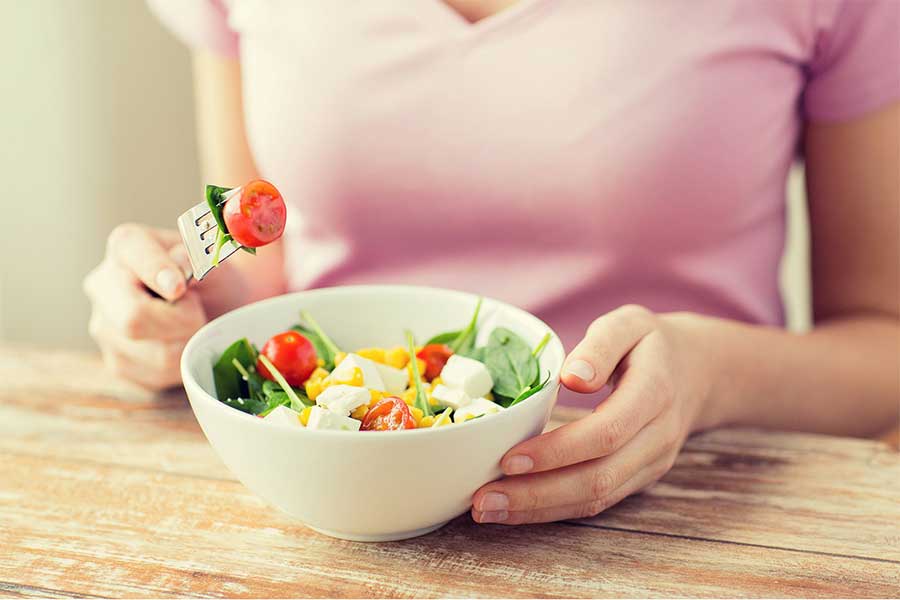Joel Fuhrman, M.D. provides ten strategies for preventing breast cancer.
1. Eat a Diet Rich in G-BOMBS
Following a high-nutrient diet rich in G-BOMBS, as described in my book, Super Immunity, protects against many chronic diseases, breast cancer included. Green vegetables and mushrooms are the most powerful anti-breast cancer foods. Take note that a vegetarian diet does not show protection against breast cancer as much as a diet rich in green vegetables, beans, mushrooms, onions, berries, nuts, and seeds. It is the phytochemical nutrient density and diversity of the diet that offers the most dramatic protection against cancer, not merely the avoidance of meat or fat.1-5
Vegetables and fruits have been consistently associated with both reduced risk of breast cancer and improved survival of breast cancer patients.3,4,6-8 Cruciferous vegetables contain powerful anti-cancer compounds that halt the growth of breast cancer cells and promote the excretion of estrogen.2,9,10 Mushrooms block tumor growth and have anti-estrogenic activity – regular consumption of mushrooms – as little as one mushroom per day – has been shown to decrease breast cancer risk by up to 60-70%.1,5,11 Organosulfur compounds in onions and garlic also prevent the development of cancers by detoxifying carcinogens, halting cancer cell growth, and preventing tumors from obtaining a blood supply.12
2. Eat Flax or Chia Seeds Every Day
Flax and chia seeds are the richest sources of lignans, phytochemicals with anti-estrogenic effects which also inhibit cell growth in breast tumors.13,14 In fact, in one notable study of women who were scheduled to have breast tumors removed, half ate a flax-containing muffin and the other half ate a control muffin daily, for 32-39 days until surgery. Their tumor tissue was analyzed, and even in this short timeframe, there was significant apoptosis (tumor cell death) and reduced cell proliferation of tumor cells in the flaxseed group.14
3. Reduce Animal Protein
Consuming more protein, especially dairy products, raises blood levels of insulin-like growth factor 1 (IGF-1), and elevated IGF-1 levels have been associated with an increase in breast cancer risk in many studies.15 Higher fish consumption in women has also been linked to higher rates of breast cancer.16 Agricultural and industrial carcinogens, such as dioxins, accumulate in fatty tissues. Humans’ primary mode of exposure to these dangerous chemicals is from meat, poultry, fish, and dairy fat.17


